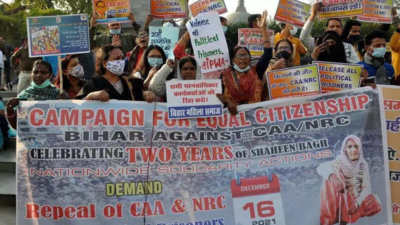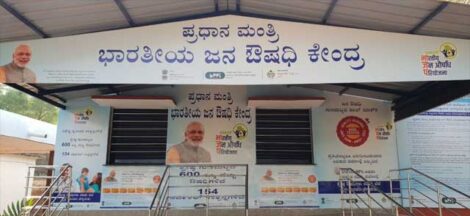West Bengal’s chief minister has raised alarm after a resident of Cooch Behar received a notice from Assam’s Foreigners Tribunal, setting off a fresh political confrontation over the National Register of Citizens. The official notice, served to Uttam Kumar Brajabashi—a Rajbanshi farmer who has been a voter in Bengal since 1966—accuses him of being a suspected illegal migrant. The move has been characterised as an unconstitutional overreach by Assam, intensifying fears of NRC’s expansion beyond established borders.
Mamata Banerjee described the notice as a “systematic assault on democracy,” asserting that Assam’s BJP government lacks legal authority to apply NRC protocols in Bengal. She warned that this is part of a broader agenda to intimidate and disenfranchise marginalised communities, and urged all opposition parties to unite against what she called the “divisive and oppressive machinery” of the BJP.
Bra jabashi maintains that he and his family are native to Dinhata, having lived there for generations. Despite presenting valid identity documents—and with evidence of his father’s name on electoral rolls dating back to 1966—he received directions from the Assam Tribunal to prove his citizenship by a specified deadline. He expressed concern at the suggestion of possible detention.
State officials and Trinamool Congress leaders defended Brajabashi, declaring him a legitimate Indian citizen and dismissing the Assam notice as baseless. Udayan Guha, a local minister from West Bengal, and Rajya Sabha MP Samirul Islam, highlighted the constitutional mismatch, arguing that Assam lacks jurisdiction over Bengal residents.
The BJP has rejected the allegations, with Assam’s cabinet emphasising that the Koch‑Rajbanshi community was exempted from the NRC process and that no pending cases remain against them. Jagannath Chattopadhyay, state BJP secretary in West Bengal, called the claim a false narrative and pointed to documentation irregularities to justify the notice.
This incident follows a broader pattern of confrontations between the state government and central agencies. Earlier, the chief minister accused the Election Commission of facilitating a covert NRC push under the guise of electoral roll revision. In June, she also alleged that Bengali speakers were being labelled as Bangladeshis and deprived of funds by BJP‑led states.
The controversy takes place against a backdrop of longstanding tensions over NRC. Bengal has historically resisted nationwide expansion of the register, leading to mass protests in 2019. Several expert analyses point to fears that NRC enforcement could regionally destabilise vulnerable communities if replicated beyond Assam.
Legal experts note that jurisdictional questions lie at the heart of the dispute. Foreigners Tribunals are constituted under Assam’s law, and serving notices outside that state may raise constitutional issues. A legal scholar at Jadavpur University observed that any attempt to extend NRC-like scrutiny into Bengal would require central government approval and possibly a Supreme Court ruling.
Political strategists argue that the timing of the notice, ahead of Bengal’s impending assembly elections, suggests a calculated move to politicise identity and citizenship. By triggering concerns over disenfranchisement, state leaders believe the BJP aims to shift electoral narratives in its favour.
Opposition figures have responded with calls for solidarity. The chief minister’s appeal for unity has been echoed by heads of Left, Congress, and smaller regional parties, all warning of an NRC agenda that could threaten democratic rights. Trinamool Congress has threatened mass mobilisation, including street protests, to challenge any extension of NRC practices.
At the core of the dispute is a deeper question over the balance of authority in India’s federal structure: whether a policy initiated in one state can effectively reach into another. The judiciary, civil society and political opposition await further developments as the case is expected to trigger legal scrutiny.




 Palestinians Have Been Given No Rights In Trump-Netanyahu Gaza Deal
Palestinians Have Been Given No Rights In Trump-Netanyahu Gaza Deal 